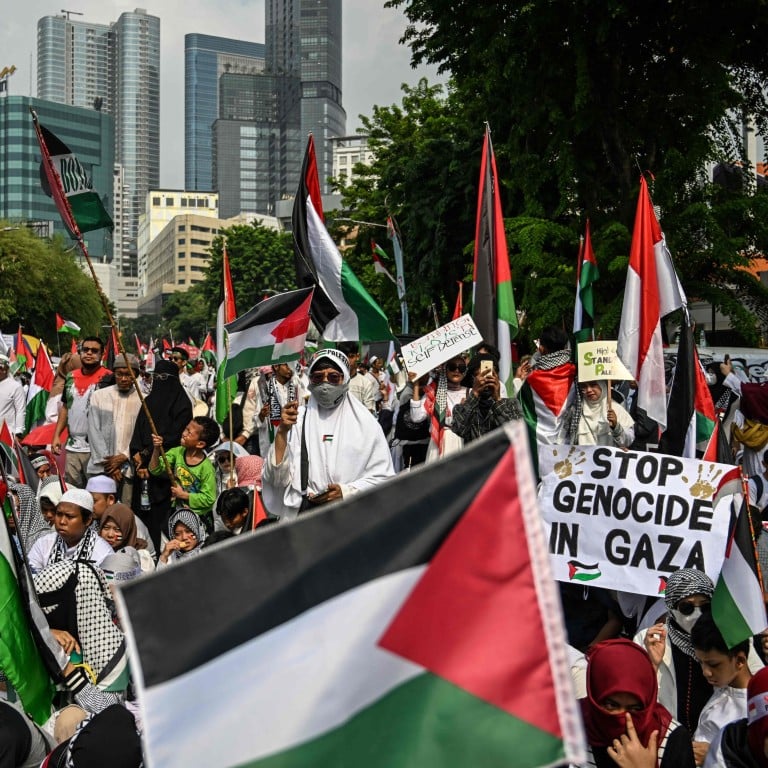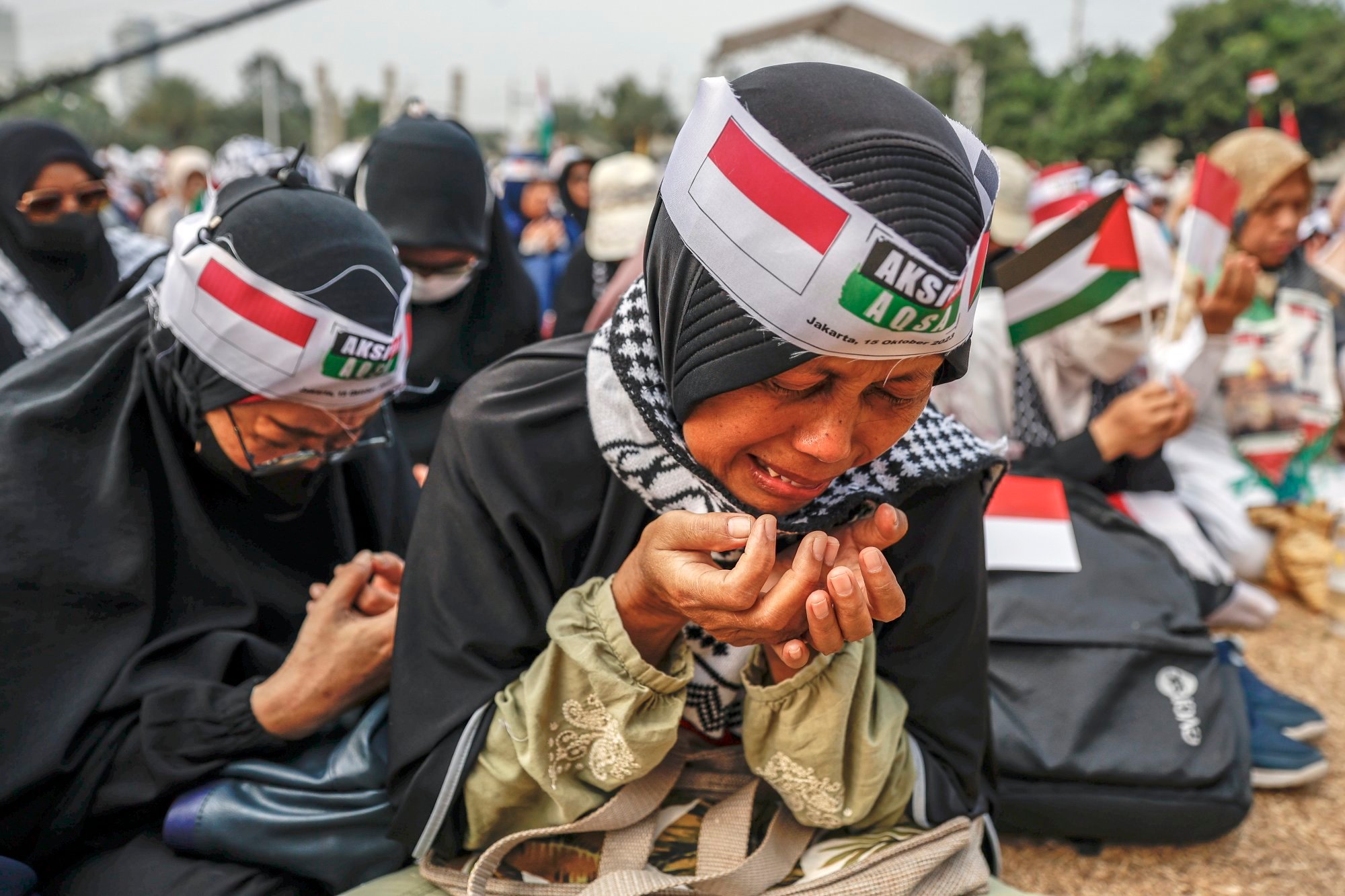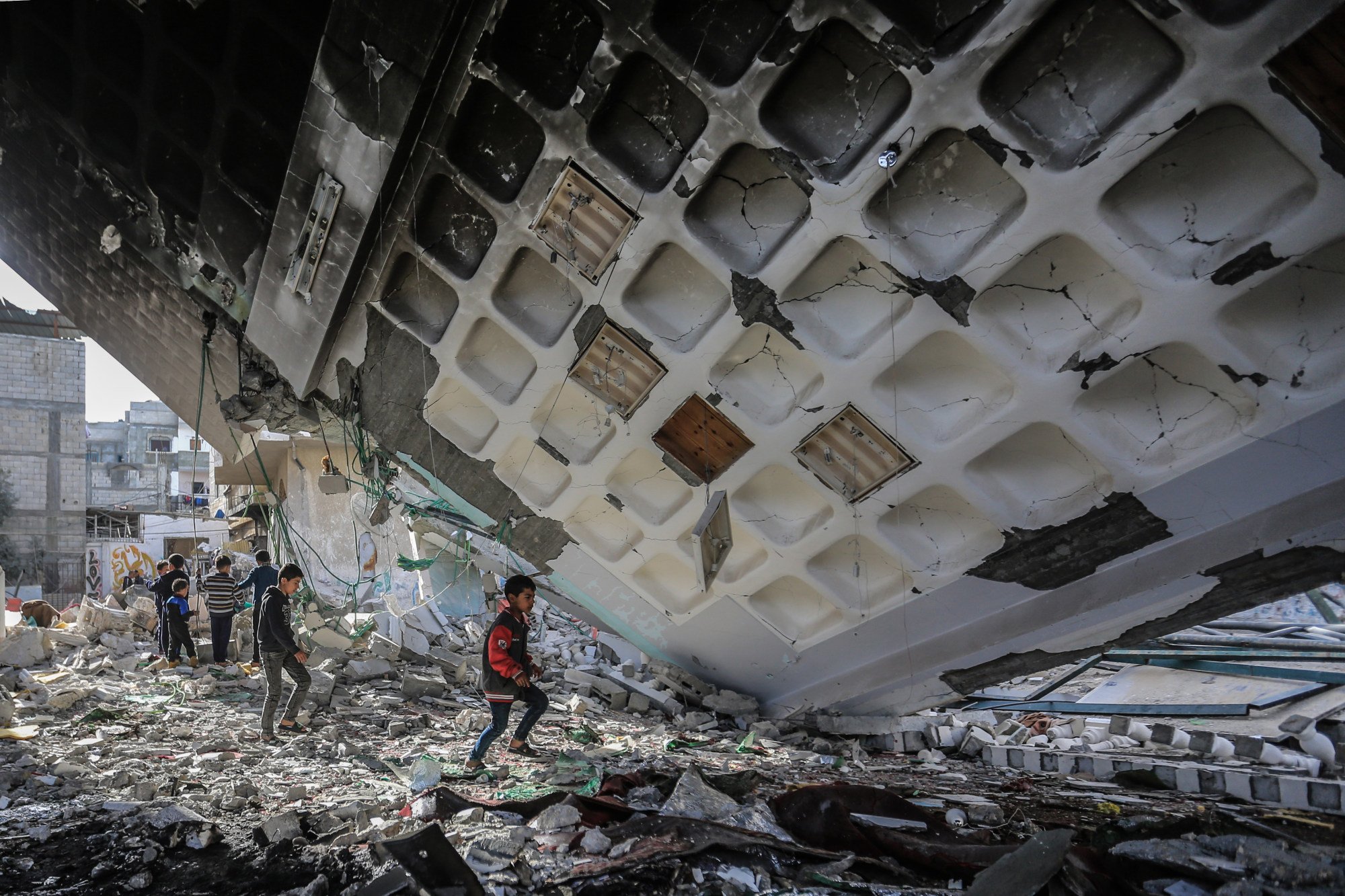
Indonesia’s divided Muslims unite around a common cause: the Israel-Gaza war
- Israel’s months-long assault on the Palestinian enclave has galvanised opinion in Southeast Asia’s most populous Muslim-majority nation
- But the politicisation of the issue, and its framing in religious terms, has also spawned unintended consequences in Indonesia
Major cleavages include the century-long rivalry between the more traditionalist Nahdlatul Ulama (NU) and the more modernist Muhammadiyah, competition among Islamic political parties, and theological differences between Sunnis and Shiites.
Differences of opinion are exemplified by disagreements over the date Eid falls on, for instance. More recently, Indonesian Muslims’ behaviour has been characterised by distinctions in social class.

It has taken a conflict thousands of miles away in the Middle East to unite them all.
Indonesia’s non-Muslim religious groups join rallies in support of Palestine
Yahya Cholil Staquf, chairman of NU’s Executive Council, has underscored the importance of consistently defending Palestinian interests, saying that this stance has been unwavering since Palestine declared its independence in 1988. Abdul Mu’ti, secretary general of the central board of Muhammadiyah, Indonesia’s second-largest mass organisation, has affirmed his organisation’s readiness to provide humanitarian assistance to Palestine. Mu’ti has also urged Israel not to exploit the conflict to pursue further annexation and aggression against the Palestinian people and their lands.
Conservative Muslim groups, including the Islamic Brotherhood Front, the National Movement to Guard Ulama Fatwa, and the Alumni Association of the “212 Movement” have also jumped on the bandwagon to condemn Israel.
Diverse ideological factions in Indonesia share common aspirations and views on the issue of Palestine. This is relatively uncommon
Even nationalists and government officials saw the political opportunity that the situation provided. On November 5, numerous figures, including state ministers, officials, non-Muslim leaders and interfaith activists, joined hands in organising an “Aksi Akbar” (grand action) for the Indonesian People’s Alliance to Defend Palestine at the National Monument in Jakarta.
All this indicates that diverse ideological factions in Indonesia share common aspirations and views on the issue of Palestine. This is relatively uncommon within the Indonesian social and political landscape.
The solid stance taken by Indonesia’s Muslim organisations across the progressive-conservative spectrum is understandable. As part of the global Muslim ummah, they could not have supported Israel’s retaliation against Gaza or even Hamas. Nevertheless, the framing of the issue remains a religious one. In other words, although the conflict involves more factors than just religion, the Indonesian public tends to see it as religiously motivated. None in Indonesia have openly condemned Hamas’ attacks against Israel and their kidnapping of innocent Israeli civilians on October 7.

The behaviour of politicians, religious elites, and mainstream organisations trickles down to society and shapes online discourse. Online, Indonesians not only call for resistance to Israeli “propaganda” but also advocate the boycott of Israeli products and express verbal criticism against the Israeli military through comments and direct messages on social media.
One widely embraced movement is #JulidFiSabilillah on X and other social media platforms like TikTok. Indonesians started this initiative, which was later joined in massive numbers by Malaysians and Turks. Julid Fi Sabilillah is a play on the phrase Jihad Fi Sabilillah, where julid means cynicism – typically manifested through sarcasm – and replaces the word jihad, which is generally translated as a meritorious effort or “struggle”. In this instance, the term julid signifies cyber assault – even doxxing – directed at the Israeli government and its military.
Will Indonesia’s unpredictable president-elect continue Jokowi’s China approach?
The politicisation of the issue and its framing in religious terms has spawned unintended consequences in Indonesia. While the political elites might have tried to outperform each other by strongly condemning Israel, this has led to uncontrolled anti-Jewish sentiments online and offline among the general public. If left unchecked, this could damage Indonesia’s image as a moderate Muslim country, which prides itself on its diversity and humanism.

